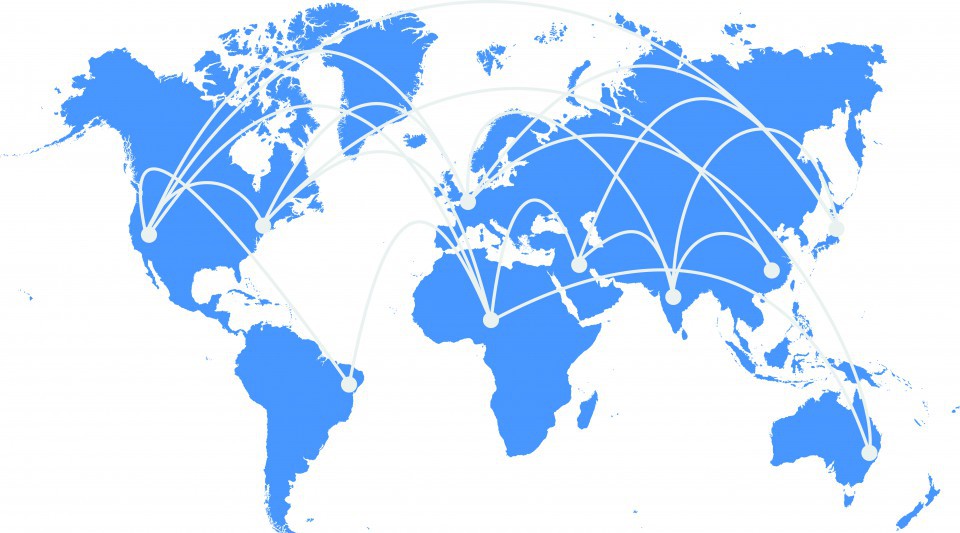TALK about the “domino effect”. In an interconnected world, stories of women’s harassment — but also of their empowerment and constant combats — are grabbing the headlines.
So here I am in Tunisia, meeting the most amazing women from across the world, talking about the challenges of being a female politician in a political landscape where men call the shots. Sometimes literally.
Miles away in Brussels, the male-dominated European political landscape is being turned upside down by revelations that even though we never talk about it, the EU institutions — and especially the European Parliament — are rife with predatory male politicians who think it’s okay to stalk, abuse and harass women.
And of course across the Atlantic, there is US President Donald Trump whose contempt for women is setting new standards. And since the Harvey Weinstein scandal hit Hollywood, 1.7 million women and men worldwide have gone public with their own stories of sexual harassment or voiced support for victims under the hashtag #metoo, or the more forceful French version, #balancetonporc (dump your pig).
This is serious. In Tunisia, at the conference organised by the Netherlands Institute for Multiparty Democracy, the International Institute for Democracy and Electoral Assistance in cooperation with the Centre of International and Mediterranean Studies, women and men talk openly about their lives in a world where female politicians face an array of challenges, including physical, psychological and cultural violence, gender stereotyping and lack of access to financing.
Their stories are heartbreakingly similar, irrespective of where they are from. European and American women may think they have made progress in securing political rights but their struggle is in fact only slightly less difficult than that of women politicians in the Muslim world or in Africa and Latin America.
“We just do everything that men do, we just do it backwards in high heels,” says Virginia Garcia Beaudoux from Argentina, referring to Ginger Rogers who danced with Fred Astaire. Life is tough but women are tougher, everywhere.
Beaudoux’s research is worth reading. “The fight for emancipation is never over,” she told the meeting in Tunisia. In politics, in business, in the media, in sport and in family life, the fight goes on to prove that men and women are equal.
Yes, there are the much-cited “glass ceilings” that women in the West complain about, referring to the invisible barriers that keep them from achieving high office, but here at the conference, women speak of “cement walls and ceilings” that enclose them as well as “sticky floors” or cultural barriers that keep them bound to domestic life.
Put simply, it’s not a level playing field. Laws and constitutions may guarantee equal rights to men and women, but tradition, culture and religion put the brakes on their implementation and enforcement.
For confirmation, just read Hillary Clinton’s new book on her experience during her failed presidential campaign. “The only way we can get sexism out of politics is to get more women in office,” she says.
A very significant number of Republican men and 50 per cent of Republican women just don’t believe a woman can be president, says Clinton. I’m afraid, many Democrats still also feel that way.
Just getting on the list of a political party can be difficult for a woman. Gender quotas help but aren’t enough. Some countries run a system of financial sanctions or rewards for parties that do or don’t proactively recruit women.
In some ways, Africa is leading the way. Rwanda is the first country in the world to have a majority of women in the legislature. Female parliamentarians in the country have enacted major reforms in banking and property laws to end discrimination against women.
Women politicians from across party lines must work together to promote women in politics, say speakers. But they also admit ruefully that not all “sisters” show solidarity with the female cause.
There are references to the negative role played by media — which is still a male-dominated sector — which treats women politicians much more harshly than their male counterparts.
But in the end political and societal mindsets have to change. Women at the meeting in Tunisia point to the difficulty of living in “patriarchal” cultures which refuse to move with the times. Equality and parity begin at home, they say, pointing out that parents can help change tradition by treating their sons and daughters equally.
And the unequal treatment does not stop once women are elected. Female politicians are preyed on by their male colleagues and often given portfolios which are considered “soft” such as family affairs.
In Brussels, meanwhile, the talk is of a “culture of silence” surrounding sexual harassment in the European Parliament. The assembly is talking of tougher sanctions against perpetrators and stronger guarantees for victims.
The struggle for equality may be an ongoing one, but the women I meet in Tunisia are proof that they are on the winning team. Passion, perseverance and a thick skin are required to join the rough and tumble world of politics. Women have all three qualities in abundance. Here in Tunisia but also across the world.
—The writer is Dawn’s correspondent in Brussels
Published in Dawn, October 28th, 2017
